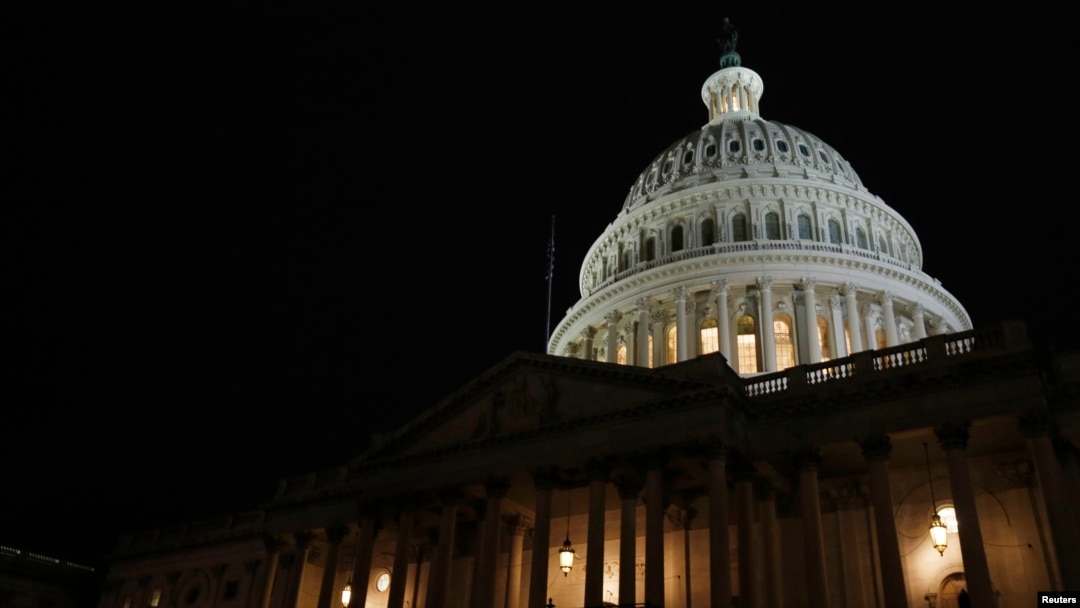2018 is a congressional election year in the United States, and President Donald Trump is urging his supporters to get motivated to vote as both parties prepare for November.
"The people who voted for us become complacent a little bit, they are happy," Trump told supporters during a recent speech on tax reform in Cincinnati. "They sort of take it for granted, they sit back and then they get clobbered because the other people are desperate and they get out, and they have more energy."
Trump predicted that Republicans will do better than expected in November when all 435 seats in the House of Representatives are at stake and 34 of the 100 Senate seats.
"I think because of what we've done, because of the tremendous success we've had, I have a feeling that we are going to do incredibly well in '18, and I have to say this, history is not on our side," he said.
Midterm blues
The president is right. History is not on his side. Midterms are typically unkind to the president's party, which on average loses about 30 House seats and a handful of Senate seats.

FILE - President Donald Trump speaks during the National Prayer Breakfast, Feb. 8, 2018, in Washington.
The losses are worse if the president's approval rating is below 50 percent, which could be the case this year. Trump's approval rating has ticked up in recent weeks, but the average has him just above 40 percent, not a strong position with a midterm looming.
"You know, you have a very unpopular president. And if Democrats take a broad path, they should win lots and lots of seats," said Jim Kessler of Third Way, a center-left advocacy and research organization.
Presidential approval
Gallup has noted historically that presidents with an approval rating above 50 percent lose an average of 14 House seats in midterms, while those below 40 percent can expect to lose about 36 seats. Democrats need to gain 24 seats in the House and two seats in the Senate to regain the majority in both chambers.
Trump hopes to rebound from a year of historically-low poll ratings by emphasizing the strong economy and boasting about the impact of his tax cut bill, something Republicans agree with.
"My view of this is, if we can't sell this to the American people, we ought to go into another line of work," Senate Majority Leader Mitch McConnell said in the wake of the passage of the tax bill.
Democrats energized
But Democrats believe they have more than history on their side this year. They are especially encouraged after statewide victories last year in Alabama, New Jersey and Virginia.
Party activists are making Trump the central issue in this year's campaign, including Tom Steyer, the billionaire environmentalist who has launched a $30-million effort to help Democrats retake the House. Steyer hopes that will result in Trump's impeachment.
FILE - Billionaire environmental activist Tom Steyer speaks during a news conference in Washington, Jan. 8, 2018.
"My fight is in removing Donald Trump from office and from power and that starts with taking the House back in 2018," Steyer said at a recent news conference.
Republicans are counting on the economy to boost Trump's poll ratings over time, and they hope he takes a more measured approach to his Twitter account.
"And he's taking an optimistic tone. He's following up on the indications that the economy is growing at a pretty healthy rate," said Michael Barone of the American Enterprise Institute.
Referendum on the president
But many voters, especially the president's critics, are likely to see the midterms as a referendum on Trump, fitting the historical pattern.
"The president will be the defining factor in the 2018 election," said Brooking Institution analyst John Hudak. "There are many out there who argue that Democrats won't be successful in 2018 because they don't have this broad, well-defined agenda. But in reality, 'out' [opposition] parties don't need to."
Republicans did get some good news in the latest Morning Consult Politico poll, which found the president's approval rating had risen to 47 percent, with an equal 47 percent disapproving of his performance. That is Trump's lowest disapproval mark in that survey since April.
WATCH: 2018 elections
Your browser doesn’t support HTML5
2018 Congressional Elections Seen as Referendum on Trump
The poll also found Republicans with a 39-to-38 percent edge in the so-called generic ballot question, which asks voters which party they would support if the election were held today.
Democrats have held a big advantage on that question in several polls in recent months, though the margin has dropped into the single digits in several recent surveys.


